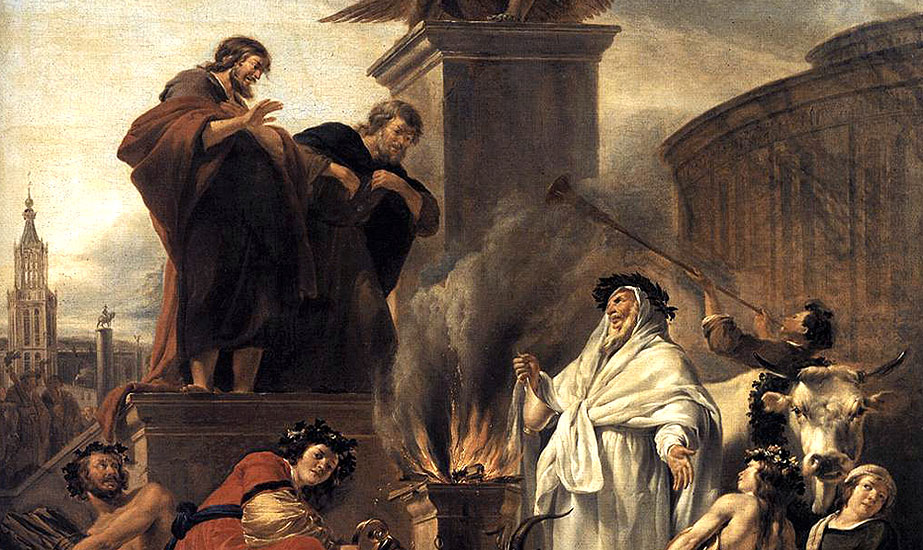
Nicolaes Berchem, 1650, Dutch Republic (Netherlands)
Acts 14:8-12 NIV – In Lystra there sat a man who was lame. He had been that way from birth and had never walked. 9 He listened to Paul as he was speaking. Paul looked directly at him, saw that he had faith to be healed 10 and called out, “Stand up on your feet!” At that, the man jumped up and began to walk. 11 When the crowd saw what Paul had done, they shouted in the Lycaonian language, “The gods have come down to us in human form!” 12 Barnabas they called Zeus, and Paul they called Hermes because he was the chief speaker.
Zeus was worshiped by the Romans and Greeks as “the protector of man”. Zeus was the most widely worshipped god in Galatia; temples to Zeus were ubiquitous. Zeus was often linked with other gods. In the territory of Lystra there are carvings and inscriptions which show Zeus accompanied by Hermes. (Gill and Gempf, The Book of Acts in its First Century Setting, Vol. 2: Graeco-Roman Setting, 393)
The Greeks believed that Zeus was the god of old age, and Hermes was his son, younger. Hermes was rich in eloquence and believed that Hermes was the god of eloquence, literature and music.
The people round Lystra told a story that once Zeus and Hermes had come to this earth in disguise. None in all the land would give them hospitality until at last two old peasants, Philemon and his wife Baucis, took them in. As a result the whole population was wiped out by the gods except Philemon and Baucis, who were made the guardians of a splendid temple and were turned into two great trees when they died.
So when Paul healed the crippled man the people of Lystra were determined not to make the same mistake again. (William Barclay’s Daily Study Bible)
Barnabas must have been a man of noble presence so they took him for Zeus the king of the gods. They called Paul Hermes because he was the chief speaker.
The King James Version used the Latin terms Jupiter and Mercurius in Acts 14:12, due to an old tradition of replacing Greek proper names by their Latin equivalents in English translations from the Greek.